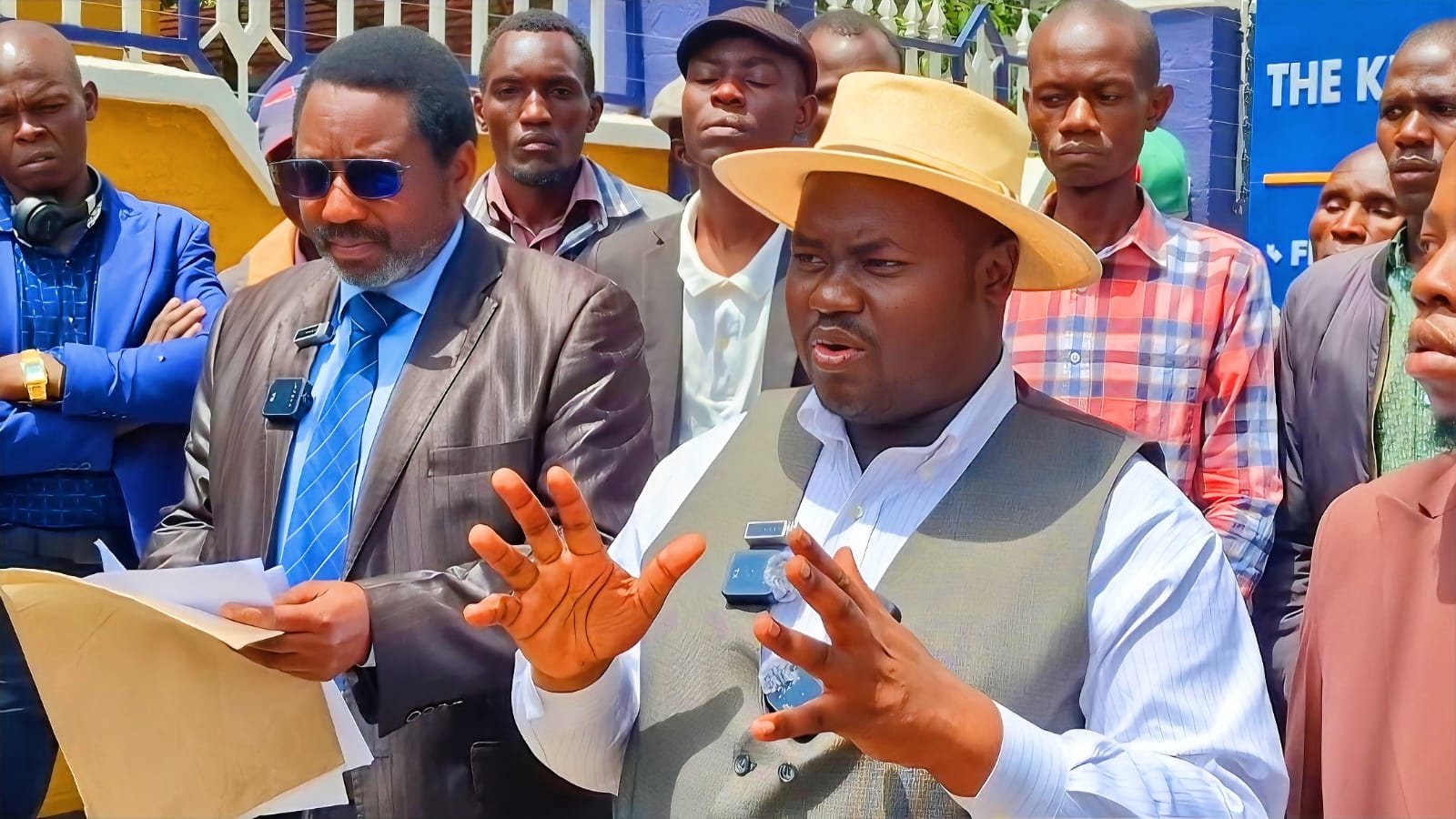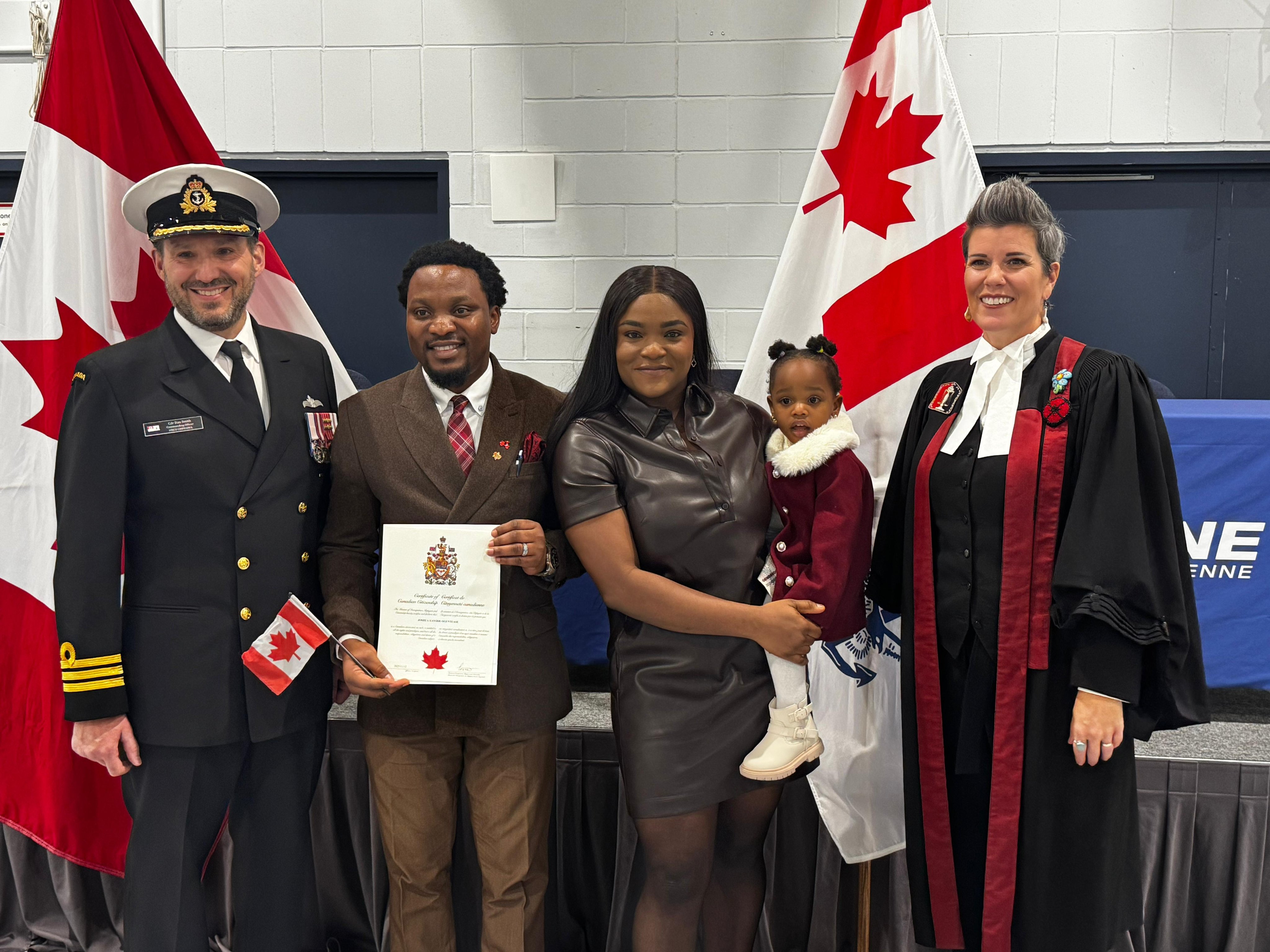-
 Dutch National Elwin Ter Horst who Assaulted Police in Diani Released for Being Bipolar.
Dutch National Elwin Ter Horst who Assaulted Police in Diani Released for Being Bipolar.
-
 World Farmers Market Coalition Awards.
World Farmers Market Coalition Awards.
-
 Petitioners accuse Kenya Bankers SACCO of systemic fraud and mismanagement
Petitioners accuse Kenya Bankers SACCO of systemic fraud and mismanagement
-
 WHY NIGERIANS CELEBRATE WESTERN CITIZENSHIP AMID RISING DOMESTIC FRUSTRATIONS
WHY NIGERIANS CELEBRATE WESTERN CITIZENSHIP AMID RISING DOMESTIC FRUSTRATIONS
-
 PASTOR KANYARI MOURNS THE DEATH OF EX- WIFE BETTY BAYO
PASTOR KANYARI MOURNS THE DEATH OF EX- WIFE BETTY BAYO
-
 LATE ISIOLO SOUTH MP LAID TO REST
LATE ISIOLO SOUTH MP LAID TO REST
-
 ETHIOPIA SECURES 2027 CLIMATE SUMMIT HOST
ETHIOPIA SECURES 2027 CLIMATE SUMMIT HOST
-
 MUSEVENI WANTS THE INDIAN OCEAN , PORTENDING WAR AGAINST KENYA
MUSEVENI WANTS THE INDIAN OCEAN , PORTENDING WAR AGAINST KENYA
-
 MUSALIA MUDAVADI : RESPECT FOREIGN LAWS
MUSALIA MUDAVADI : RESPECT FOREIGN LAWS
MUSEVENI WANTS THE INDIAN OCEAN , PORTENDING WAR AGAINST KENYA

Ugandan President Yoweri Museveni has recently been in a provocative mode against Kenya, escalating tensions with fresh claims over Kenya’s Indian Ocean access and warning of a possible future war if his demands are not met.
While addressing leaders in Mbale on November 9, President Yoweri Museveni metaphorically compared Africa to a shared apartment block, arguing that landlocked nations like Uganda — which lack a coastline — should have equal access to the “compound.”
“How can you say that you are in a block of flats and that the compound belongs only to the flats on the ground floor? That compound belongs to the whole block,” Museveni said.
“Uganda is landlocked inside here. But where is my ocean? My ocean is the Indian Ocean. It belongs to me. I am on the top floor of the block and then you say the compound belongs to the ones on the ground floor. This is madness.”
Museveni went further to explain the practical challenges facing a landlocked Uganda, highlighting how the lack of direct ocean access hinders both national security and economic development.
“In Uganda, even if you want to build a navy, how can you build it? We don't have access to the sea. The political organisation in Africa is so irrational. Some countries have no access to the sea, not only for economic purposes but also for defence purposes. You are stuck. How do I export my products? That is why we have had endless discussions with Kenya. This one stops, another comes. The railway and the pipeline – we discuss. But that ocean belongs to me. Because it is my ocean. I am entitled to that ocean. In the future we're going to have wars,” Museveni said.
The most recent confrontation adds to a series of Museveni’s provocations against Kenya. On October 29, during a public rally at Kalas Girls Primary School in Amudat District, the Ugandan head of state claimed that three Ugandan geologists and two UPDF soldiers were killed by Turkana warriors along the border. Museveni publicly demanded that Kenya pay what he termed as “blood compensation.”
“The Turkana still have a debt as they must compensate for the lives of people they killed. I told President [William Ruto] that if these criminals don’t have money, the Kenyan government must pay,” Museveni declared.
He went further, announcing that the compensation would be done in a cleansing ceremony involving religious leaders and elders:
“The Kenyan government will pay for the lives of those killed. … Elders will cleanse the blood of the people who died. The bishops and sheikhs will also come in and contribute.”
Later, in an Executive Order, he insisted that traditional reparations must match “the full value” of a life taken:
“The price of the kukaraba cannot be the traditional one, of a few cows. It must be adjusted to the full value of what the deceased would have contributed in his/her life.”
More to these damning confrontation Museveni casually revealed that Ugandan security forces had arrested two Kenyan activists — Bob Njagi and Nicholas Oyoo — accusing them of working with opposition leader Robert Kyagulanyi (Bobi Wine).
“We got two Kenyans whom we arrested. They came … they were working with Kyagulanyi’s group … they are experts in riots. … Of course … we have very good intelligence. … They have been in the fridge for some days. Now, some Kenyan leaders rang me and said I should either put them in jail here or hand them back.”
The remark — delivered with chilling nonchalance — has since ignited outrage across both sides of the border. Human rights groups condemning the statement as evidence of state-sanctioned abduction and torture, while Kenyan officials quietly sought clarification through diplomatic channels.
Ascending to power in 1986 through a military coup, Museveni has occasionally been in strained relations with Kenya’s past three presidents, and President Ruto has not been an exception. Yet, Kenya has often approached these tensions with caution and diplomacy.
This ongoing antagonism, however, can be seen as a snowball gathering momentum — small provocations piling up over time — with the potential to escalate into broader regional tensions if left unchecked.






Comments (0)
No comments yet. Be the first to comment!